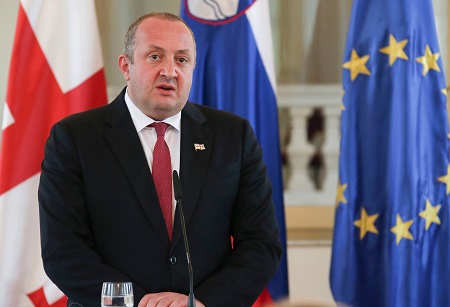President rejects referendum on defining marriage

The President of Georgia says no referendum will take place in Georgia to define marriage in the Georgian Constitution as a union of a man and a woman.
President Giorgi Margvelashvili named two major reasons yesterday why he was against conducting the referendum pushed forward by an initiative group composed of several, mainly non-parliamentary and non-Government people.
The President said the occupation of 20 percent of the Georgian territory and current Georgian legislation encouraged him to reject the referendum, despite the fact the group managed to obtain more than 200.000 signatures regarding the note in the Constitution.
Our legislation says that a referendum must cover the whole territory of Georgia. I, as a guarantee of Georgia’s sovereignty and territorial integrity, am obliged to first of all defend the country’s unity and sovereignty,” the President said.
In the situation since the Russia-Georgia war in 2008 Russia has recognised Georgian regions of Abkhazia and Tskhinvali (South Ossetia) as independent republics therefore conducting the referendum without the participation of these two de-facto regions will give the occupants an additional legal argument,” Margvelashvili added.
As a second argument the President stressed the Georgian legislation prohibited conducting of referendums on legal issues.
Consequently, the President stressed the Parliament of Georgia and not a referendum must decide whether the term marriage is defined as a union of only a man and a woman in the Constitution or not.
Herewith, Georgian legislation already says that marriage is a voluntary unity of a man and a woman,” the President said.
The initiative group grilled the President for his statement today and said they would now launch a petition that calls for the resignation of President Margvelashvili.
Georgia’s Central Election Commission (CEC) addressed the President to discuss the initiative group’s appeal over the definition of the term marriage on July 30 after the group presented its signed petition urging for amendments to the Constitution.
The President had 30 days to discuss the appeal. If the President accepted the initiative his consent must then be approved by the Prime Minister.
The last referendum in Georgia was held in 2003 which decreased the number of Georgian lawmakers from 250 to 150. The referendum was not held in the de facto regions but at that time the areas were not still recognised as independent republics by Russia.
 Tweet
Tweet  Share
Share